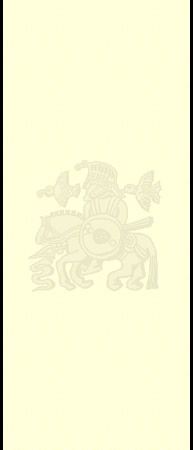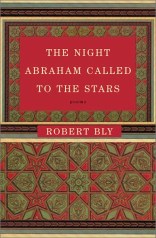



| Web site design and maintenance by Akikaze Media Services. All content of this site, unless otherwise noted, is copyright ©2001 Robert Bly. All Rights Reserved. Any duplication, in any form without the written consent of the copyright holder is prohibited. |

The cardinal's cry could be heard at Gettysburg.
Such a simple, elegant line. And in it, the world.
So much happens when no one is watching
Forget Iron John, the storied ego and anything you've heard about Robert Bly that isn't about poetry. This Minnesotan is a giant among poets, and nothing else matters.
The poems are windows blown open by winter wind.
His greatest gift is his ability to compress layered stories and emotions into a few deceptively simple words. His latest collection, "The Night Abraham Called to the Stars," showcases that talent in joyous fashion.
Bly admires Islamic poetry and the romantic, lyrical ghazal form (pronounced GHUZZLE), established in Persia more than a thousand years ago. In this book, he borrows the form to create cultured and beautiful statements.
Bly's ghazals consist of six three-line verses. In each, an "I" speaks to the reader in an intimate way, as "Friend."
Examining multiple subjects and emotions, Bly leaps from the personal to the universal, often within a single poem, yet there is no disconnect; the final verse usually makes some subtle, stunning connection.
Held in check by the ghazal's strict form, Bly's emotions seem more vivid than they would were they fully, wildly expressed.
A scan of titles suggests the diversity of Bly's subject matter: "The Dead of Shiloh," "Why We Became Lovers," "Forgiving the Mailman," "The Battle at Ypres, 1915," "Noah Watching the Rain." The work is learned, yet highly inviting.
Here's a sample from the title poem:
We are faithful companions to the unfaithful stars.
We are diggers, like badgers; we love to feel
The dirt flying out from behind our hind claws.
And no one can convince us that mud is not
Beautiful. It is our badger soul that thinks so.
Among the best poems is "Monet's Haystacks." One imagines the poet writing it after seeing Monet's radiant painting at the Minneapolis Institute of Arts and concluding that it led the artist to know "that despair and reason live in the same house."
It's strange that our love of Beauty should lead us to hell.
I caught one glimpse of you, and a moment later
My house and books were all thrown into the fire. . . .
The horses of sorrow are always restless, breaking
Out of fences, trampling the neighbors' garden.
The best odes are written by the pirates in the moonlight.
Bly is no pirate, but rather a muse with full sails. Long may he live and write.
—Pamela Miller, Minneapolis Star Tribune